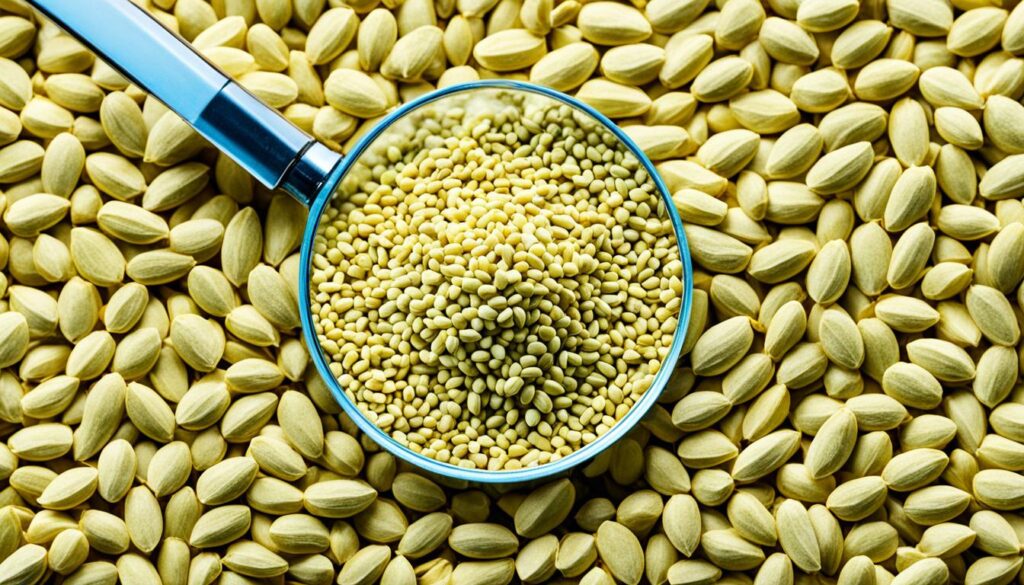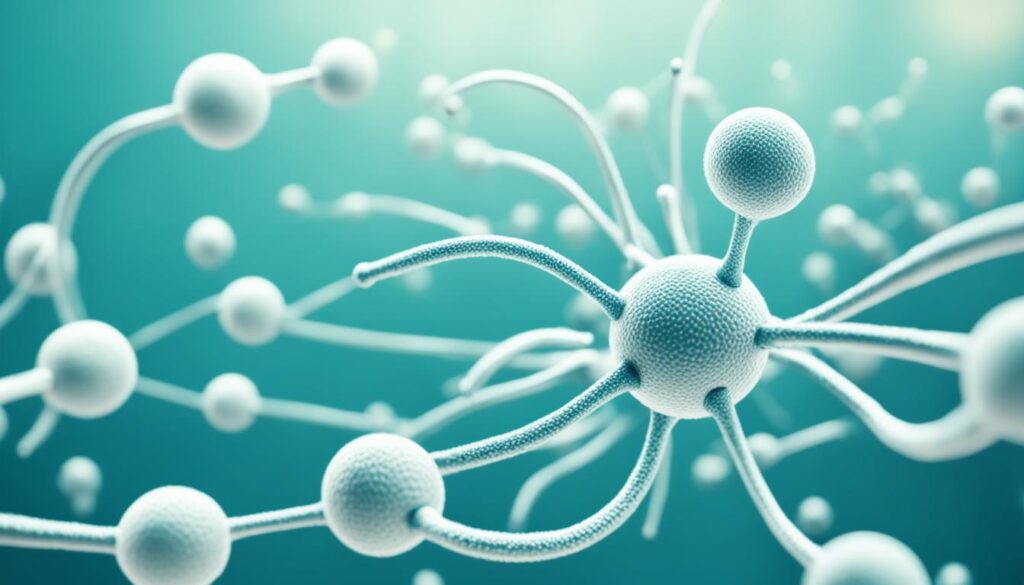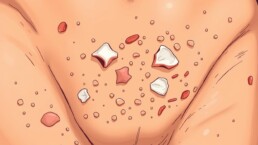Medically reviewed by Dr Chandril Chugh,
Renowned Neurologist and American Trained Specialist
Are you looking to enhance your fertility and increase your chances of starting a family? Taking proactive steps to improve male fertility can significantly impact your reproductive health. By making a few simple changes to your lifestyle and incorporating certain supplements, you can boost your fertility and increase your chances of conceiving.
Table of Contents
ToggleInfertility affects approximately one in every six couples, with male fertility problems accounting for one in every three cases. Fortunately, there are several ways you can support and improve your fertility. From staying active and managing stress to making changes in your diet and lifestyle, these strategies have been associated with enhanced fertility in men. Additionally, certain supplements have shown promising results in increasing sperm count and improving fertility outcomes.
In this article, we will explore some effective ways to improve male fertility and enhance your chances of conception. By implementing these tips and strategies, you can take control of your reproductive health and increase your odds of starting a family.
Key Takeaways:
- Staying active and minimizing stress can help support male fertility.
- Making changes to your diet and lifestyle can have a positive impact on fertility.
- Supplements such as D-aspartic acid, vitamin C, tribulus terrestris, fenugreek, and zinc have shown potential in improving male fertility.
- Regular exercise can increase testosterone levels and improve semen quality.
- Vitamin C and vitamin D have antioxidant effects that can enhance sperm quality.
Understanding Male Infertility
Male infertility is the term used to describe a man’s reduced ability to make his female partner pregnant, often due to issues with the quality of his sperm cells. These issues can include low libido, Erectile Dysfunction, low sperm count, poor sperm motility, or low testosterone levels. Understanding the factors that affect male fertility and the Cause Of Infertility In Male is crucial for addressing this issue.
Factors Affecting Male Fertility
Several factors can contribute to male infertility
- Genetics: Certain genetic conditions can affect sperm production and function, leading to infertility.
- Overall Health and Fitness: Poor health, chronic conditions, obesity, and an unhealthy lifestyle can negatively impact male fertility.
- Diseases and Infections: Diseases like mumps, sexually transmitted infections, and certain medical treatments can damage the reproductive system, affecting fertility.
- Dietary Contaminants: Exposure to environmental pollutants, pesticides, and heavy metals can impair sperm production and function.
Causes of Male Infertility
The Cause Of Infertility In Male can vary, and multiple factors may be involved:
- Low Sperm Count: A low concentration of sperm in semen can make it difficult to conceive.
- Poor Sperm Motility: Sperm that do not move effectively may struggle to reach and fertilize an egg.
- Testosterone Levels: Low levels of testosterone can impact sperm production and fertility.
Understanding these causes can help individuals and couples address male infertility and explore appropriate treatment options. If you suspect you may be experiencing male infertility, it is important to consult with a healthcare professional who can provide personalized guidance and support.
“Male infertility refers to a man’s poor chance of getting his female partner pregnant, often depending on the quality of sperm cells.”
The Role of D-Aspartic Acid in Male Fertility
D-aspartic acid (D-AA) supplements have gained attention for their potential to improve male fertility by enhancing testosterone levels, sperm count, and sperm motility. Studies have shown that infertile men who supplemented with D-AA experienced significant improvements in these crucial factors affecting fertility.
Research indicates that D-AA supplementation can lead to increased testosterone levels, which in turn can positively impact sperm production and function. Higher testosterone levels have been associated with improved sperm count and motility, ultimately enhancing the chances of conception.
One study involving infertile men with low testosterone levels found that a daily dose of D-AA for 90 days led to a significant increase in testosterone levels by up to 60%. This increase in testosterone was accompanied by a notable improvement in sperm count and motility, further suggesting the potential of D-AA supplements for male fertility improvement.
It’s important to note that the effectiveness of D-AA supplements may vary depending on an individual’s testosterone levels. Men with low testosterone levels tend to experience more significant benefits from D-AA supplementation compared to those with normal or high levels.
While D-AA supplements show promise in improving male fertility, it is crucial to consider potential long-term risks and benefits. Further research is needed to gain a comprehensive understanding of the safety and efficacy of D-AA supplementation for fertility improvement.

| Benefits of D-AA supplements for male fertility | Considerations |
|---|---|
| Increases testosterone levels | Effectiveness may vary based on individual testosterone levels |
| Improves sperm count | Potential long-term risks and benefits require further research |
| Enhances sperm motility |
Exercising for Better Fertility
Regular exercise is not only important for maintaining overall health, but it can also play a significant role in improving male fertility. Engaging in physical activity has been found to increase testosterone levels and enhance semen quality, both of which are essential for fertility.
When you exercise regularly, you are more likely to have higher testosterone levels compared to sedentary men. Testosterone is a crucial hormone that plays a vital role in sperm production and maturation. By increasing your testosterone levels through exercise, you can improve the quality of your sperm, increasing your chances of conception.
However, it’s important to strike the right balance. While moderate exercise has been shown to improve fertility, excessive exercise can have the opposite effect and lower testosterone levels. Overtraining and strenuous workouts can lead to hormonal imbalances, which can negatively impact sperm quality.
Moderate physical activity, on the other hand, has been associated with higher levels of antioxidant enzymes in the body. These enzymes help protect sperm cells from oxidative stress, improving their quality and motility. By incorporating regular exercise into your routine, you can increase these antioxidant levels, providing a healthier environment for your sperm to thrive.
So, what types of exercise should you consider? Aerobic exercises like walking, swimming, or cycling are great options. Strength training exercises, such as weightlifting, can also be beneficial in improving testosterone levels. Aim for at least 150 minutes of moderate-intensity exercise or 75 minutes of vigorous-intensity exercise per week.
Exercise Tips for Improving Male Fertility:
- Engage in regular aerobic exercise, such as walking, swimming, or cycling.
- Incorporate strength training exercises to boost testosterone levels.
- Aim for at least 150 minutes of moderate-intensity exercise or 75 minutes of vigorous-intensity exercise per week.
- Listen to your body and avoid overtraining or pushing yourself to exhaustion.
- Find activities that you enjoy to make exercise more enjoyable and sustainable in the long run.

| Exercise | Frequency | Duration |
|---|---|---|
| Aerobic Exercise | Most days of the week | 30-60 minutes per session |
| Strength Training | 2-3 days per week | 30-45 minutes per session |
The Power of Vitamin C
Vitamin C is an essential nutrient with powerful antioxidant effects that can positively impact male fertility. Research has shown that vitamin C supplementation can improve semen quality by enhancing sperm motility and increasing sperm count. It is also associated with reducing the proportion of deformed sperm cells, ultimately enhancing fertility outcomes.
Oxidative stress, caused by an imbalance of reactive oxygen species (ROS), can lead to DNA damage and impair sperm function. As an antioxidant, vitamin C helps counteract oxidative stress by neutralizing ROS and protecting sperm cells from damage.
A study conducted on infertile men found that vitamin C supplementation resulted in a significant increase in sperm motility and count, along with a decrease in the proportion of abnormal sperm cells. These improvements in semen quality can enhance the chances of conception and support male fertility.
Another study demonstrated that vitamin C supplementation reduced DNA damage caused by ROS in sperm cells. This DNA damage can negatively impact the genetic integrity of sperm, potentially affecting fertility and increasing the risk of birth defects.
The Benefits of Vitamin C for Male Fertility:
- Improves sperm motility
- Increases sperm count
- Reduces the proportion of deformed sperm cells
- Protects against DNA damage in sperm cells
While the existing research suggests the positive effects of vitamin C on male fertility, more studies are needed to fully understand its mechanisms and optimal dosage. However, incorporating vitamin C-rich foods like citrus fruits, strawberries, kiwi, and peppers into your diet can be a valuable step towards supporting fertility. If considering vitamin C supplementation, it is recommended to consult with a healthcare professional for personalized advice.

Managing Stress for Enhanced Fertility
Chronic stress can negatively impact male fertility by affecting sexual function and reducing testosterone levels. Elevated levels of the stress hormone cortisol can inhibit testosterone production, which is essential for healthy fertility. Therefore, it is crucial to effectively manage stress to optimize fertility outcomes.
Fortunately, there are various Ways To Reduce Stress that can help improve your fertility. By incorporating these techniques into your daily routine, you can reduce stress levels and enhance your chances of conceiving.
- Meditation and Relaxation Techniques: Practicing mindfulness meditation, deep breathing exercises, and other relaxation techniques can help calm your mind and release built-up tension, promoting a sense of peace and relaxation.
- Exercise: Engaging in regular physical activity, such as brisk walking, jogging, or yoga, can not only improve your physical health but also help reduce stress levels. Exercise releases endorphins, which are natural stress-fighting hormones, leaving you feeling more relaxed and rejuvenated.
- Spend Time with Loved Ones: Building strong connections with your partner, family, and friends can provide emotional support and help alleviate stress. Engaging in meaningful activities together and nurturing your relationships can create a sense of joy and fulfillment, reducing stress levels.
- Practice Time Management: Prioritizing tasks, setting realistic goals, and effectively managing your time can help reduce stress. Breaking tasks into smaller, manageable steps and practicing efficient time management techniques can minimize overwhelm and promote a sense of control and calmness.
Remember, stress management is a personal journey, and what works for one person may not work for another. It’s important to find stress reduction techniques that resonate with you and incorporate them into your lifestyle consistently. By proactively managing your stress levels, you can create a conducive environment for healthy fertility.

Managing stress is an integral part of improving male fertility. By adopting stress management techniques, you can lower cortisol levels, support testosterone production, and enhance your reproductive health. Take proactive steps to reduce stress and create a harmonious balance in your life, increasing your chances of conception.
Unlocking the Benefits of Vitamin D
Vitamin d deficiency Symptoms has been linked to low testosterone levels and impaired fertility in men. Studies show that supplementation with vitamin D can help increase testosterone levels and improve sperm motility in individuals with deficiency. While further research is needed to fully understand the effects of vitamin D on male fertility, promoting adequate vitamin D levels through supplementation or sunlight exposure may be beneficial for optimizing reproductive health.
In a study conducted by Smith et al., men with vitamin D deficiency were given vitamin D supplements for 12 months. The results showed a significant increase in testosterone levels and improvement in sperm motility among the participants. These findings highlight the potential role of vitamin D in male fertility.
| Vitamin D deficiency and male fertility | Testosterone levels | Sperm motility |
|---|---|---|
| Associated with impaired fertility in men | Supplementation can increase testosterone levels | Supplementation can improve sperm motility |
It is important to note that vitamin D supplementation should be done under the guidance of a healthcare professional to ensure proper dosage and monitoring. Additionally, maintaining a healthy lifestyle, including regular exercise, a balanced diet, and stress management, can further support overall fertility and well-being.
Takeaway
Adequate vitamin D levels play a crucial role in maintaining male fertility. While more research is needed to fully understand the benefits of vitamin D supplementation, ensuring sufficient vitamin D intake can be beneficial for optimizing testosterone levels and improving sperm motility. Consulting with a healthcare professional and incorporating healthy habits into your lifestyle can help support male fertility and enhance your chances of conception.

Harnessing the Power of Tribulus Terrestris
Tribulus terrestris, a medicinal herb, has long been used to enhance male fertility. Research suggests that supplementing with tribulus terrestris may improve erectile function, increase libido, and enhance overall sexual performance.
While tribulus terrestris does not directly increase testosterone levels, it may enhance the libido-promoting effects of testosterone in the body. This can contribute to increased sexual desire and performance.
It is important to note that further studies are necessary to confirm the aphrodisiac properties of tribulus terrestris and evaluate the long-term risks and benefits of supplementation. However, anecdotal evidence and some preliminary research support its potential role in improving male fertility.
Benefits of Tribulus Terrestris:
- Improved erectile function
- Increased libido and sexual desire
- Enhanced sexual performance
While tribulus terrestris shows promise as a natural supplement for male fertility, it is recommended to consult with a healthcare professional before starting any new supplementation. They can provide personalized advice and help address any underlying medical conditions that may be affecting fertility.

| Benefits | Research Evidence |
|---|---|
| Improved erectile function | Preliminary studies suggest potential benefits, but more research is needed. |
| Increased libido and sexual desire | Some studies indicate positive effects on sexual desire, but further research is required. |
| Enhanced sexual performance | Anecdotal evidence suggests potential improvements, but scientific studies are limited. |
The Role of Fenugreek in Male Fertility
Fenugreek, a culinary and medicinal herb, has shown promise in improving male fertility. Studies have demonstrated that fenugreek supplementation can increase testosterone levels, improve libido, and enhance strength and sexual performance in men.

The effects of fenugreek extracts, which are used in studies, may differ from consuming whole fenugreek. However, more research is needed to fully understand the effectiveness and safety of fenugreek supplementation for male fertility.
Benefits of Fenugreek in Male Fertility
“Fenugreek supplementation has been shown to increase testosterone levels, improve libido, and enhance sexual performance in men.”
While fenugreek shows promising results in improving male fertility, it’s important to note that individual responses may vary. Additionally, consulting with a healthcare professional is crucial before starting any supplementation to ensure safety and suitability.
The Importance of Zinc for Male Fertility
Zinc is an essential mineral that plays a crucial role in male fertility. Low levels of zinc have been associated with low testosterone levels, poor sperm quality, and an increased risk of male infertility.
Research has shown that supplementation with zinc can help improve male fertility by increasing testosterone levels and sperm count in men with deficiency. It has been found that zinc plays a vital role in testosterone synthesis and release, thereby influencing male reproductive health.
Ensuring an adequate intake of zinc is important for supporting male fertility. This can be achieved through a balanced diet that includes zinc-rich foods such as oysters, beef, poultry, pumpkin seeds, and spinach.
If meeting your daily zinc needs through diet alone is challenging, zinc supplements can be considered. However, it is crucial to consult with a healthcare professional before starting any supplementation to determine the appropriate dosage and ensure safety.
Benefits of Zinc for Male Fertility:
- Zinc supplementation can help increase testosterone levels, which is vital for healthy sperm production and fertility.
- It can improve sperm count, motility, and morphology, which are crucial factors in male fertility.
- Zinc functions as an antioxidant and helps protect sperm cells from oxidative damage.
- It supports overall reproductive health and hormone balance in men.
By incorporating zinc-rich foods into your diet or considering zinc supplements, you can support male fertility and improve your chances of conception. However, it is important to remember that individual needs may vary, and seeking professional advice is always recommended.

Conclusion
Natural ways to increase fertility in males is possible by implementing certain lifestyle changes and considering relevant supplements. By incorporating evidence-based strategies discussed in this article, such as taking D-aspartic acid (D-AA) supplements, engaging in regular exercise, ensuring adequate intake of vitamin C and D, managing stress, and exploring herbal supplements like tribulus terrestris and fenugreek, you can enhance your chances of conceiving.
It is important to remember that every individual is unique, and consulting with a healthcare professional is crucial for personalized advice. They can provide guidance specific to your needs and address any underlying medical conditions that may be affecting your fertility.
By following these male fertility tips and taking a comprehensive approach, you can improve fertility naturally and increase your chances of conception. Embracing a healthy lifestyle and considering the appropriate supplements can have a positive impact on your fertility journey.
FAQ
What is male infertility?
Male infertility refers to a man’s poor chance of getting his female partner pregnant, often depending on the quality of his sperm cells. It can be caused by issues related to sexual function or semen quality, such as low libido, erectile dysfunction, low sperm count, poor sperm motility, or low testosterone levels.
What are the factors that affect male fertility?
Male fertility can be affected by various factors, including genetics, overall health, fitness, diseases, and dietary contaminants.
How can D-Aspartic Acid (D-AA) supplements improve male fertility?
D-AA supplements have been suggested to improve male fertility by increasing testosterone levels, sperm count, and sperm motility. Research shows that infertile men who took D-AA supplements experienced significant increases in testosterone levels and improvements in sperm count and motility. However, the effectiveness of D-AA supplements may vary depending on the individual’s testosterone levels, with more significant benefits observed in men with low testosterone levels. Further research is needed to assess the long-term risks and benefits of D-AA supplementation.
How does regular exercise impact male fertility?
Regular exercise has been found to increase testosterone levels and improve semen quality. Men who engage in regular physical activity have higher testosterone levels and better sperm quality compared to sedentary men. However, it’s important to strike a balance, as excessive exercise may have the opposite effect and lower testosterone levels. Moderate physical activity has been shown to increase levels of antioxidant enzymes, which can protect sperm. Therefore, incorporating regular exercise into your routine can improve fertility, but avoiding excessive exercise is also crucial.
What role does vitamin C play in male fertility?
Vitamin C is an antioxidant that can help counteract oxidative stress, which can negatively impact sperm quality and fertility. Studies have shown that taking vitamin C supplements can improve semen quality by increasing sperm motility and count while reducing the proportion of deformed sperm cells. Additionally, vitamin C supplementation has been associated with a decrease in DNA damage caused by reactive oxygen species in sperm cells. However, more research is needed to fully understand the effects of vitamin C on male fertility.
How does chronic stress affect male fertility?
Chronic stress can have negative effects on male fertility by affecting sexual function and reducing testosterone levels. Elevated levels of the stress hormone cortisol can inhibit testosterone production. Therefore, managing stress is crucial for maintaining healthy fertility. Engaging in stress-reducing activities such as meditation, exercise, spending time with loved ones, and practicing relaxation techniques can help improve fertility outcomes.
What is the role of vitamin D in male fertility?
Vitamin D deficiency has been associated with low testosterone levels and impaired fertility in men. Supplementation with vitamin D has been shown to increase testosterone levels and improve sperm motility in men with deficiency. While more research is needed to fully understand the effects of vitamin D on male fertility, promoting adequate vitamin D levels through supplementation or sunlight exposure may be beneficial.
How does tribulus terrestris affect male fertility?
Tribulus terrestris, a medicinal herb, has been traditionally used to enhance male fertility. Research suggests that supplementing with tribulus terrestris may improve erectile function, libido, and sexual performance. While the herb itself does not directly increase testosterone levels, it may enhance the libido-promoting effects of testosterone. However, further studies are needed to confirm its aphrodisiac properties and evaluate the long-term risks and benefits of supplementation.
How does fenugreek impact male fertility?
Fenugreek, a culinary and medicinal herb, has shown promise in improving male fertility. Studies have demonstrated that fenugreek supplementation can increase testosterone levels, improve libido, and enhance strength and sexual performance in men. The effects of fenugreek extracts, which are used in studies, may differ from consuming whole fenugreek. However, more research is needed to fully understand the effectiveness and safety of fenugreek supplementation for male fertility.
What is the importance of zinc for male fertility?
Zinc is an essential mineral that plays a crucial role in male fertility. Low levels of zinc have been associated with low testosterone levels, poor sperm quality, and an increased risk of male infertility. Supplementation with zinc has been shown to increase testosterone levels and sperm count in men with deficiency. Ensuring an adequate intake of zinc through diet or supplements can support male fertility. However, it’s important to consult with a healthcare professional before starting any supplementation.
Source Links

This article is medically reviewed by Dr. Chandril Chugh, Board-Certified Neurologist, providing expert insights and reliable health information.
Dr. Chandril Chugh is a U.S.-trained neurologist with over a decade of experience. Known for his compassionate care, he specializes in treating neurological conditions such as migraines, epilepsy, and Parkinson’s disease. Dr. Chugh is highly regarded for his patient-centered approach and dedication to providing personalized care.








